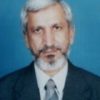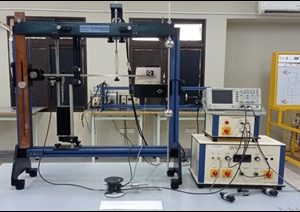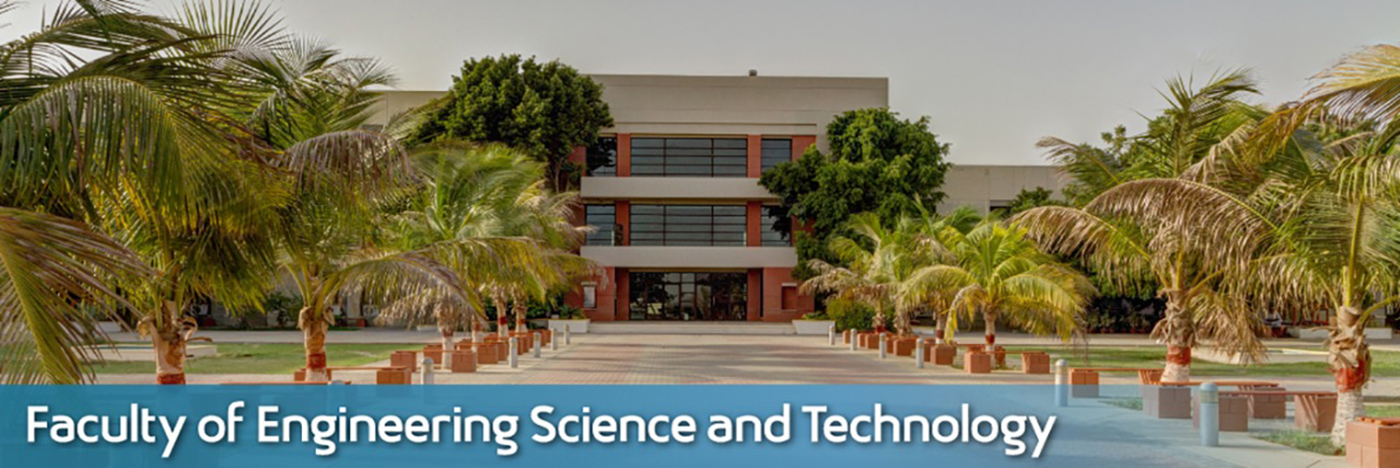
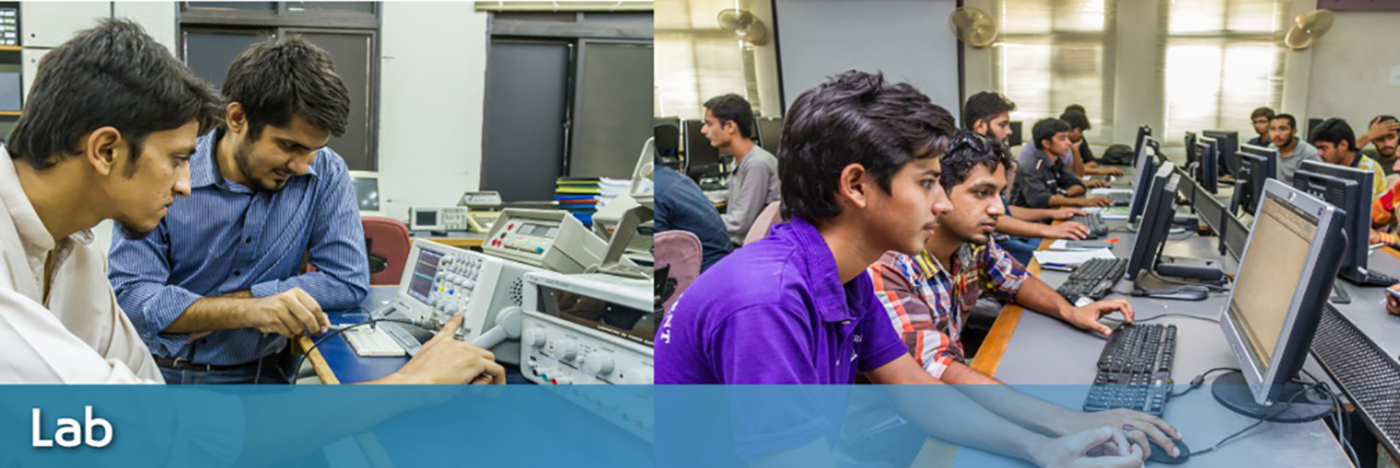
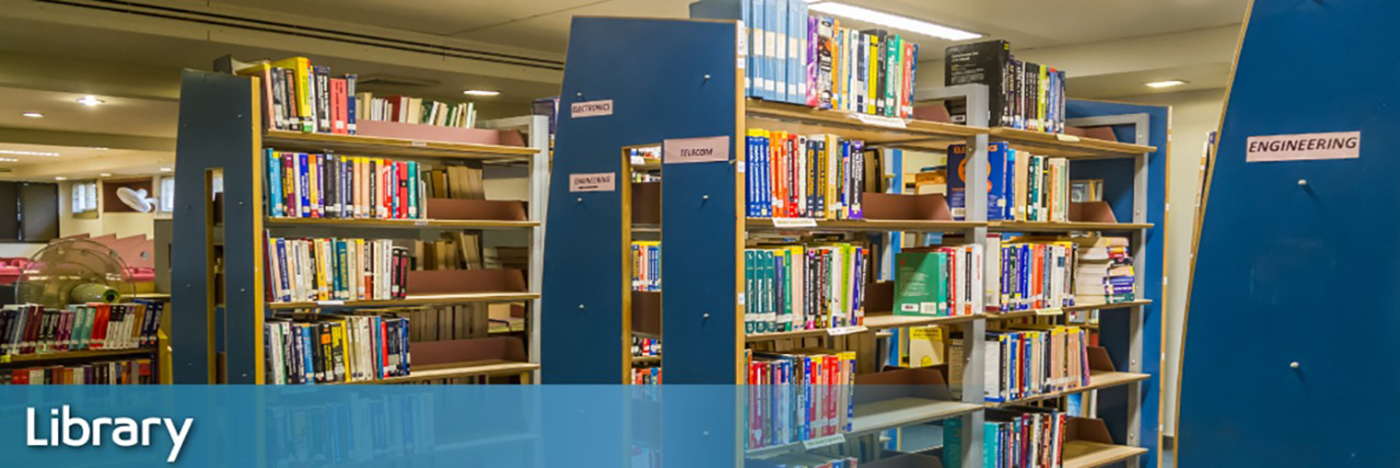
BE Mechanical Engineering
 A very warm welcome to the Department of Mechanical Engineering at Hamdard University. Mechanical Engineering is the field which provides broader knowledge and problem analyzing techniques from design to manufacturing of the equipment/ machinery. To ensure proper functioning, efficiency and reliability of equipment Mechanical Engineers utilize the concept of the principles of motion, energy, and force.
A very warm welcome to the Department of Mechanical Engineering at Hamdard University. Mechanical Engineering is the field which provides broader knowledge and problem analyzing techniques from design to manufacturing of the equipment/ machinery. To ensure proper functioning, efficiency and reliability of equipment Mechanical Engineers utilize the concept of the principles of motion, energy, and force.
Our main goal is to provide students with the detailed mechanical engineering education and training required for immediate entry into the job market. For this purpose our faculty and students interact with each other to create, develop and implement new ideas which are essential for OBE (Outcome Based Education) System. This includes solving today’s problems and creating future solutions in health care, energy, transportation, world hunger, space exploration, climate change, and more.
Mechanical Engineering department laboratories are well established and is equipped with advance equipment’s which motivates students to learn beyond defined boundaries of syllabi thereby enabling students to develop skills amongst the students to become promising engineers in the future. Students are regularly afforded opportunities to participate in extracurricular activities so that they can polish their managerial and teamwork skills. The objective of these activities is to provide an environment for the practical application of classroom teaching. Our program is accredited with Pakistan Engineering Council under OBE level II, which ensure that students are getting quality education.
Engr. Dr. Syed Asad Ali Zaidi
Chairman & Associate Professor
Department of Mechanical Engineering
Faculty of Engineering Sciences & Technology
Email: asad.zaidi@hamdard.edu.pk
To be recognized as an excellent education and research place producing competent and industry relevant Mechanical Engineers with professional and social values to meet the ever changing industrial demands and social needs.
- To impart quality education to the students in effective teaching – learning and research environment for building their capacity to meet career challenges as mechanical engineers.
- To provide the students and faculty with a set of skills, knowledge and understand the need for lifelong learning for a long productive career as engineers and leaders by establishing a continuous Industry Institute Interaction.
- To maintain state of the art research facilities motivating students and faculty to excel in cutting- edge technology and entrepreneurship.
The PEO’s of the program states that the Mechanical engineering graduates will:
PEO_1: Take an interdisciplinary and integrative approach to address and solve engineering issues in broad societal contexts.
PEO_2: Have the intellectual independence and leadership skills to critically evaluate information and to take creative course of action.
PEO_3: Practice the habits of life-long learning, necessary for a good human being and a sound professional.
Students who successfully complete our program will have satisfied the following Program Outcomes:
PLO_1 Engineering Knowledge: An ability to apply knowledge of mathematics, science, engineering fundamentals and an engineering specialization to the solution of complex engineering problems.
PLO_2 Problem Analysis: An ability to identify, formulate, research literature, and analyze complex engineering problems reaching substantiated conclusions using first principles of mathematics, natural sciences and engineering sciences.
PLO_3 Design/Development of Solutions: An ability to design solutions for complex engineering problems and design systems, components or processes that meet specified needs with appropriate consideration for public health and safety, cultural, societal, and environmental considerations.
PLO_4 Investigation: An ability to investigate complex engineering problems in a methodical way including literature survey, design and conduct of experiments, analysis and interpretation of experimental data, and synthesis of information to derive valid conclusions.
PLO_5 Modern Tool Usage: An ability to create, select and apply appropriate techniques, resources, and modern engineering and IT tools, including prediction and modeling, to complex engineering activities, with an understanding of the limitations.
PLO_6 The Engineer and Society: An ability to apply reasoning informed by contextual knowledge to assess societal, health, safety, legal and cultural issues and the consequent responsibilities relevant to professional engineering practice and solution to complex engineering problems.
PLO_7 Environment and Sustainability: An ability to understand the impact of professional engineering solutions in societal and environmental contexts and demonstrate knowledge of and need for sustainable development.
PLO_8 Ethics: Apply ethical principles and commit to professional ethics and responsibilities and norms of engineering practice.
PLO_9 Individual and Team Work: An ability to work effectively, as an individual or in a team, on multifaceted and /or multidisciplinary settings.
PLO_10 Communication: An ability to communicate effectively, orally as well as in writing, on complex engineering activities with the engineering community and with society at large, such as being able to comprehend and write effective reports and design documentation, make effective presentations, and give and receive clear instructions.
PLO_11 Project Management: An ability to demonstrate management skills and apply engineering principles to one’s own work, as a member and/or leader in a team, to manage projects in a multidisciplinary environment.
PLO_12 Lifelong Learning: An ability to recognize importance of, and pursue lifelong learning in the broader context of innovation and technological developments
The Department of Mechanical Engineering at Hamdard University offers a Bachelor’s Degree Program BE (Mechanical) spanning over 4 years. The program has been prepared in accordance with the Pakistan Engineering Council (PEC) guidelines. Based on satisfactory compliance submitted by the department as per PEC 105th EAB decision, for B.E. Mechanical Engineering program is accredited up to Intake Batch 2018 under level-II.
- Intermediate or an equivalent examination (Pre-Engineering) with at least 60% marks
- Must have studied Mathematics, Physics and Chemistry at HSSC / A- level
- Applicants with O-Level / A-Level and Technical studies must submit equivalence from IBCC
Engr. Dr. Syed Asad Ali Zaidi
Chairman & Associate Professor
Department of Mechanical Engineering Science & Technology
Mechanical Engineering
Email: asad.zaidi@hamdard.edu.pk
Prof. Dr. Abdul Hameed Memon
Professor, Department of Mechanical Engineering Science & Technology
Mechanical Engineering
Email: hameed.memon@hamdard.edu.pk
Mr. Syed Nadeem Mian
Assistant Professor, Department of Mechanical Engineering Science & Technology
Mechanical Engineering
Email: nadeem.mian@hamdard.edu.pk
Engr. Rehan Khursheed
Assistant Professor, Department of Mechanical Engineering Science & Technology
Mechanical Engineering
Mr. Mahesh Kumar
Lecturer, Department of Mechanical Engineering Science & Technology
Mechanical Engineering
Email: mahesh.kumar@hamdard.edu.pk
Lecturer, Department of Mechanical Engineering Science & Technology
Mechanical Engineering
Email: arsalan.khan@hamdard.edu.pk
Mr. Kashif Ahmed
Mr. Rahool Rai
Lecturer, Department of Mechanical Engineering Science & Technology
Mechanical Engineering
Email: mahesh.kumar@hamdard.edu.pk
Engr.Yusra Tahir
Lecturer, Department of Mechanical Engineering Science & Technology
Mechanical Engineering
Email: yusra.tahir@hamdard.edu.pk
Curriculum Vitae
Mr. Syed Raheel Zafar
Lab Engineer, Department of Mechanical Engineering Science & Technology
Mechanical Engineering
Email: raheel.zafar@hamdard.edu.pk
Mechanical Workshop
Mechanical Engineering Workshop is a place where students acquire knowledge on the operation of various processes involved in manufacturing and production. The Workshop Practice course makes students competent in handling practical work in engineering environment. Mechanical Engineering Workshop is also involved in different maintenance/repair works for University.
Installed Equipment:
2-Grinder
3-Milling Machine
4-Drilling Machine
5-Gas Welding
6- Electric Arc welding
7- Power Hack Saw
8- Bench cutter
9- Wood Work Tools
10- Fitting shop Tools
11- Work Bench
Internal Combustion Engines & Power Plant Lab
The lab is equipped with several working models of internal combustion engines including a spark-ignition engine, compression-ignition engine and steam turbine. Students conduct experiments on each of these engines to study and assess their performance.
1-Mini Steam Power Plant
2-Combustion Analyzer
3- Diesel engine module
4-Gasoline engine module
5-Four stroke diesel engine test bed
6- Toyota Corolla GLI 1.6 Trainer
7-Gasoline Engine test bed
8-Dynamometer
Heat Transfer & HVAC Lab
The heat transfer lab is equipped with an array of equipment for students to study heat transfer mechanisms in a variety of heat exchange devices. In particular, the laboratory has models of a refrigerator, a dehumidifier, two cooling units and an absorption refrigerator that offer a detailed insight into refrigeration and air-conditioning.
Installed Equipment:
1-Refrigeration Laboratory Unit
2-Air Conditioning Lab Unit
3-Absorption Refrigeration Trainer
4-Changes of State in the Refrigeration Circuit
5-Commercial Refrigeration Skills Trainer
6-Temperature Measurement Bench
7-Changes of States Gases
8-Free & Forced Convection from Flat, Pin and Fin plates
9-Laws of Radiant Heat Transfer (Thermal and Light Radiation)
10-Thermal Conductivity of Liquid & Gases
11-Thermal Conductivity of Building with Air Compressor
12-Radial/Linear Heat Conduction Heat Exchanger Service Unit
13-Shell and Tube Heat Exchanger
14-Plate type Heat Exchanger
15-Laminar/Viscous Flow Heat Transfer Unit with Oil
Engineering Mechanics Lab:
Engineering Mechanics Laboratory has a varied range of apparatus and demonstration units to provide a comprehensive understanding of this branch of mechanical engineering. The students are able to observe and understand several basic principles such as gyroscopic motion and pulleys.
Installed Equipment:
2-Combined shear force and bending moment apparatus
3-Basic roof truss apparatus
4-Polygon forces apparatus
5-Relationship b/w Linear Angular Velocity Apparatus
6-Simply supported beam apparatus
7-Wheel and Axle Apparatus
Thermodynamics Lab:
Students can learn using practical experiments about the behavior of gases, heat transfer and thermal conductivity, conduction, convection and heat exchange. They can get hands on to prove theories such as the Carnot cycle and reversible Carnot cycle, Stefan Boltzmann law, Kirchhoff’s law and Lambert’s direction law.
1-Maxwallian velocity & Distribution (Model no. P2320300) 
2-Heat Capacity of Gases
3-Adiabatic Coefficient of gases- Flammersfield oscillator
4-Equation of state of ideal gases with Cobra3
5-Pressure Measurement Bench
6- Two Stage air compressor
7-Nozzle Performance Study System
8-Mechanical Heat Pump
9-Internal Combustion Engine (Cut Section model for demo)
10-Two Stroke Diesel Engine (Cut Section model for demo)
11-Four Stroke Diesel Engine (Cut Section model for demo)
12-Two Stroke Petrol Engine (Cut Section model for demo)
Fluid Mechanics Lab:
This facility has several turbines, flow devices and test rigs to provide students an opportunity to perform a wide range of experiments and develop a comprehensive understanding of hydrodynamics.
1-Francis Turbine
2-Bernoulli Apparatus
3-Centrifugal Pump
4-Osborne Reynolds Apparatus
5-Pelton turbine
6-Hydraulic Benches (3)
7-Flow meter Demonstration Rig
8-Energy Losses in a pipe test Rig
CAD/CAM Lab
The CAD/CAM laboratory provides the computer knowledge on design and the skills on designing software. The students can draft the model in both 2D and 3D objects and analysis of the parts can be carried out. CAD/CAM Lab 40 computers (Core i5) with software like AUTOCAD, CREO, SOLIDWORKS, MATLAB and ANSYS are available for the students to practice on it.

Mechanisms and Mechanical Vibrations Lab
1-Double Epicyclic Gear Train
2-Rack and Pinion
3-Spur Gear Lifting
4-Cam and Follower
5-Wheel and Differential Axle
6-Linear and Angular Apparatus
7-Worm and Wheel Apparatus
8-Governor Apparatus (EES-7019)
9-Whitworth Quick Return Mechanism
10-Gears Trains Apparatus
11-Universal Vibration Apparatus
12-Free forced & Damped Torsional Vibration Apparatus
13-Linear Vibration System
14-Whirling of Shaft Apparatus
15-Torsional Vibration Apparatus

